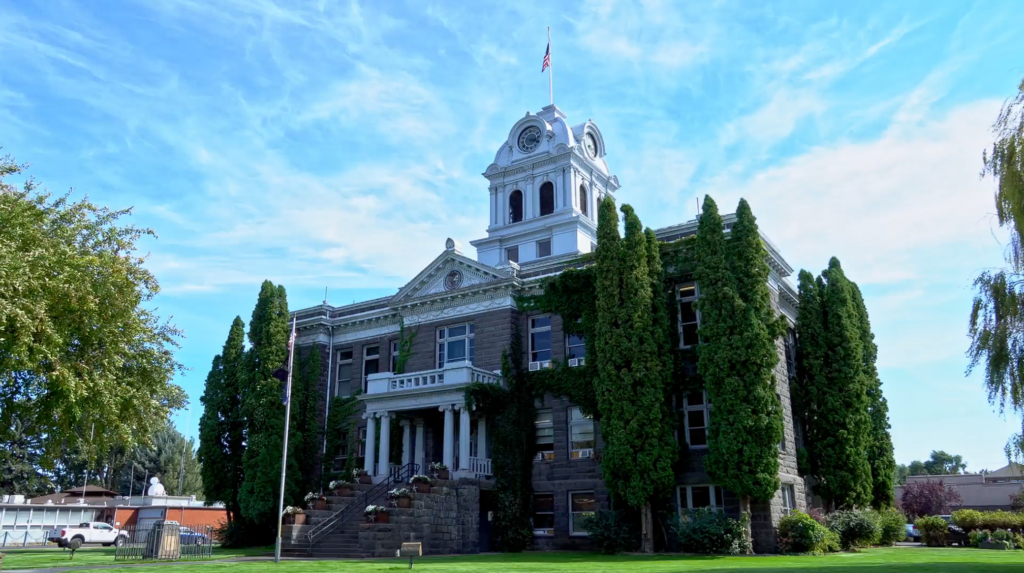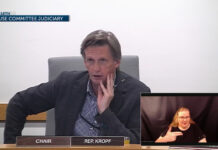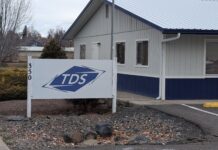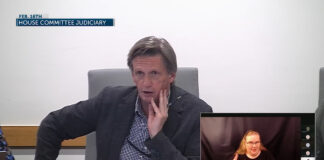
In recent months, the Prineville Review has faced multiple waves of communications as part of an unsettling campaign of intimidation. From anonymous death threats to unfounded accusations of personal lawsuits, other things that are just simply inappropriate to be repeated here in publication, and now claims that our reporting amounts to “harassing volunteers”, it’s clear that some would rather silence difficult questions than face them.
Let us be absolutely clear: The Prineville Review will not be intimidated.
Our investigative journalism has drawn particular attention—precisely because it has been effective. We have asked direct questions, examined public records, and scrutinized those acting with public authority. That is not harassment. It is journalism. And we will not apologize for doing our job.
Our reporting on local government has consistently helped the public stay informed and engaged by ensuring their voices are heard. This includes numerous instances where local officials were considering decisions with significant financial or social impacts—from garbage service rates to public meeting policies, land use, water service, and fiscal accountability.
Recent criticisms have mischaracterized our work as targeting charitable volunteers. That is both inaccurate and deliberately misleading. Our reporting has focused on public bodies—entities that administer taxpayer dollars, hold legal authority, and make decisions that impact the lives of local residents. The fact that some public officials serve in volunteer capacities, or the perceived or actual size of such bodies, does not exempt them from transparency, accountability, or journalistic scrutiny. The term “volunteer,” when applied to public governance, is not a shield from the public interest.
It is not lost, however, that these individuals are unpaid—just as the vast majority of local elected officials are. Still, they hold positions of power. It is important to distinguish between general volunteer work for a public body and service on an elected board, or on a committee with influence over elected officials. Too often, people fail to separate ordinary volunteer labor from the responsibilities of elected office, whether in a small special district or in city or county government.
Such volunteer service and labor—whether by an elected official or an average citizen—should be commended. But those who exercise power and carry the responsibility of representing their constituents must also be subject to public accountability when they wield the power to make decisions that impact a wider public. That principle is a cornerstone of our democracy and our republic.
Unfortunately, this recent atmosphere of hostility has spilled over into our digital spaces.
A number of these users (which may ultimately just be a single actor) were clearly referring to our reporting on the Highland Subdivision Water District—reporting that has exposed serious issues related to transparency and legal compliance, and the communications were almost immediate in the wake of our past reporting on such matters.
Coincidentally, just yesterday, a new wave of threatening messages from newly created “throwaway” accounts appeared online within hours of a contentious interaction with certain HSWD officials, including a threat from one to call 911 in an afront to stifle simple questioning from a journalist. Some of the postings are still present on our Instagram, while others appear to have been hidden or removed by the platform itself. This comes after a past incident months ago in which an HSWD official (who is also the spouse of a board member) attempted to grab a camera and physically prevent us from filming during a public meeting while stating we could not record her, even while she was speaking.
Those same officials had become belligerent after being challenged once again for violating core provisions of public meeting laws and questioned immediately following a public meeting about business dealings and closed-door decisions in appointing a new board member to an elected office (something not allowed under the law). The language used in the threatening posts was very similar to the statements made by HSWD officials—who have repeatedly dismissed our publication as merely a “blog,” as if that somehow undermines the truth of our reporting or the protections afforded to the press under our constitutions.
Ultimately, we cannot say for certain that these individuals (or what may be a single individual) engaging in these attempts are tied to the HSWD, but the source and connections are ultimately not the point being made here.
To threaten journalists, to attempt to intimidate or silence them, is an affront not just to the press but to the very principles of a free and open society. It is unconscionable. And it will not work. This couldn’t be truer when it occurs from the very public officials elected to serve the public, and honestly, it should not matter if such conduct from our public officials is directed towards a journalist or an average citizen.
Separate from the threats, we continue to welcome healthy and constructive dialogue—including critiques of our reporting. Such engagement, when expressed respectfully and without threats toward us or others, is not only allowed on our social media platforms, but encouraged. We recognize that differing viewpoints are part of a vibrant public discourse and remain committed to fostering that environment.
That said, let us also make something else clear: The Prineville Review is more than just an investigative outlet. While our reporting on local government has become a defining focus—true to the American press’s foundational role—we have also made every effort, despite limited resources and a no-cost, ad-free model, to shine a light on the best of Crook County.
Our reporting has featured the achievements of community organizations, the vibrancy of local businesses, the creativity of our youth, and the dedication of public servants who have gone above and beyond. We report the hard truths, yes—but also the hopeful ones.
Reporting on local government is not a luxury or a vendetta—it is a cornerstone of American journalism dating back to the founding of our nation. A free press that fails to ask hard questions is not serving its readers. We will never take that path.
This diversity of coverage reflects our core mission: to inform, to elevate, and to hold accountable. It is a mission we will continue to pursue without fear or favor.
We are proud to serve this community. We are grateful for those who support the essential role of a free press. And to those who believe threats or mischaracterizations will change the course of our work—we suggest you read more history.
To our readers who continue to support our effort to undertake this difficult task, we thank you, and we will remain committed to giving a voice to the voiceless in our community.
We will not be intimidated. We will not back down. And we will not stop doing what the press was always meant to do.
I’ll leave you with this quote from former President John F. Kennedy, given to the American Newspaper Publishers Association in April of 1961, that I believe rings very true today:
"The very word 'secrecy' is repugnant in a free and open society; and we are as a people inherently and historically opposed to secret societies, to secret oaths and to secret proceedings. We decided long ago that the dangers of excessive and unwarranted concealment of pertinent facts far outweighed the dangers which are cited to justify it. Even today, there is little value in opposing the threat of a closed society by imitating its arbitrary restrictions. Even today, there is little value in insuring the survival of our nation if our traditions do not survive with it. And there is very grave danger that an announced need for increased security will be seized upon by those anxious to expand its meaning to the very limits of official censorship and concealment."
Mr. Alderman is an investigative journalist specializing in government transparency, non-profit accountability, consumer protection, and is a subject matter expert on Oregon’s public records and meetings laws. As a former U.S. Army Military Police Officer, he brings a disciplined investigative approach to his reporting that has frequently exposed ethics violations, financial mismanagement, and transparency failures by public officials and agencies.





